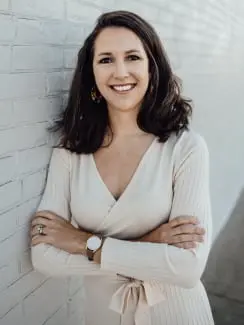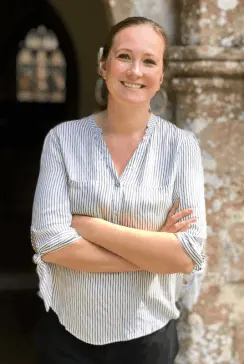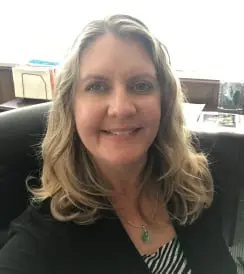 | 1 LU / HSW |
 | 1 LU / HSW |
The Energy CLASS (Champions Leading the Advancement of Sustainable Schools) Prize is focused on building capacity within local educational agencies (LEAs) to identify and implement energy and health improvements in their facilities and classrooms. This effort is made possible through the Bipartisan Infrastructure Law’s schools provision set aside $500 million to transform decaying public school infrastructure into healthier, more energy efficient learning environments. In this session, the US Department of Energy (DOE) will share its vision and goal for the Energy CLASS Prize that aims to provide resources to staff and train personnel on operations and maintenance (O&M), strategic energy management, indoor environmental quality, project development, funding pathways, and related topics to deepen bandwidth and knowledge for advancing the fiscal and environmental sustainability of their schools. This session will also feature the training provider tasked with developing and delivering continuing education to school staff on the aforementioned topics as well as representatives from two school participating in the program.
Learning Objectives:

Andrea is on the Schools and Non-profits Program within the US Department of Energy’s (DOE) Office of State and Community Energy Programs (SCEP). Andrea is supporting the administration of the $500 million grant program and the new Energy CLASS Prize through the Bipartisan Infrastructure Law (BIL) for schools to implement high-impact energy efficiency and health improvements as well as innovative energy technology packages. Andrea has spent the last 15 years focused on designing, constructing, maintaining, and now financing the advancement of learning spaces. Prior to her role at DOE, Andrea was the former the Deputy Chief of Facilities for DC Public Schools (DCPS). Andrea started her career as a practicing architect where she focused on educational design, specifically K-12 buildings. Andrea is an advocate for high performance design in student learning environments.

Katie is the captain of Elkhorn Area School District’s “Energized Elks” team as part of the US Department of Energy’s first Energy CLASS. Located in rural southeastern Elkhorn, Wisconsin, the district is working to make efficiency and infrastructure improvements throughout the district for its 3,500 students across seven school buildings. Participation in the Energy CLASS program will provide access to the advanced technical assistance and on-hand efficiency training that can often be difficult to source in rural America. The district’s goal is the creation of both short-term and long-term plans to minimize energy usage, and making cost-effective improvements to its aging buildings to promote a healthier learning environment.
Katie is the grant writer for the City of Elkhorn (Pop. 10,300). In her role, she has sourced funding and technical support for the municipality, school district, and Chamber of Commerce for their rural community. She has lived in small towns all her life, and understands the unique strengths and barriers they each face. She believes the greatest challenges are knowing where to look for outside help and bringing innovation to a small community while still preserving its character.

Reilly is an Associate Director at New Buildings Institute (NBI), a national non-profit organization dedicated to research and developing leading edge practices and technology applications for high performance buildings and translating them into innovative and practical solutions for building professionals, government agencies and utility energy efficiency programs. At NBI, Reilly focuses on energy efficiency in schools, which includes work developing educational opportunities and resources for a better understanding of healthy, energy efficient, carbon neutral schools. The program’s focus is on drastic energy and carbon reduction in K-12 schools to ensure optimal spaces for students and staff to work, learn, and play. Reilly also designs and develops NBI workshops, public engagement materials, and other technical and market transformation resources. Reilly has received several awards including USGBC Women in Green, USGBC Center for Green School’s Ambassador Award, and the NEEA Rising Star Award for her work advocating for sustainable schools.

Jennifer has been the Senior Director of Environmental Compliance & Sustainability for Orange County Public Schools since 2008. In 2012, Jennifer implemented the first Sustainability initiatives and in 2015 implemented a districtwide long-range Sustainability strategic plan for the 8th largest school district in the United States. In 2022, the Sustainability Plan 2030 was revised and updated to include the reduction in waste, water conservation, health and wellness, energy conservation and renewable energy, and efficient transportation within the school district. The Environmental Compliance Department team is responsible for monitoring conditions to comply with standards dictated by environmental regulatory agencies, managing regulated waste activities, and managing the district-wide indoor environmental quality, asbestos and regulated storage tank programs.
Jennifer has over 20 years of experience in the environmental and industrial hygiene field and holds a Master of Science in Public Health specializing in Industrial Hygiene from the University of South Florida.
This track addresses the Response to real-world events and experiences that impact our daily life and our ability to function normally and be productive. The response to these occurrences is reflected in the learning environments we create and leads to the question – how can schools respond to real-world crises in a way that supports the well-being of occupants and our students' learning journey? How do we respond with approaches and strategies that may be used to balance the inability and lack of needed financial resources to address deficiencies within our learning environments’ infrastructure? Topics expand on the Art approach to the theme, but also include Science in the form of findings and outcomes through case studies and examples of successful responses to real-world conditions and events such as the COVID-19 pandemic, climate change, declining student enrollment, economics, equity, and other topics.
Primary Core Competency
Ethics/Professionalism: Provides leadership and stewardship for the responsible investment of public and private funding into school facilities – while being a known advocate for the importance of the learning environment on a child’s future. They lead and have a record of leading transparent processes that help communities find common ground in developing solutions to complex and sensitive issues – advocating for long term solutions that address the needs of all children and stakeholders including underserved groups.